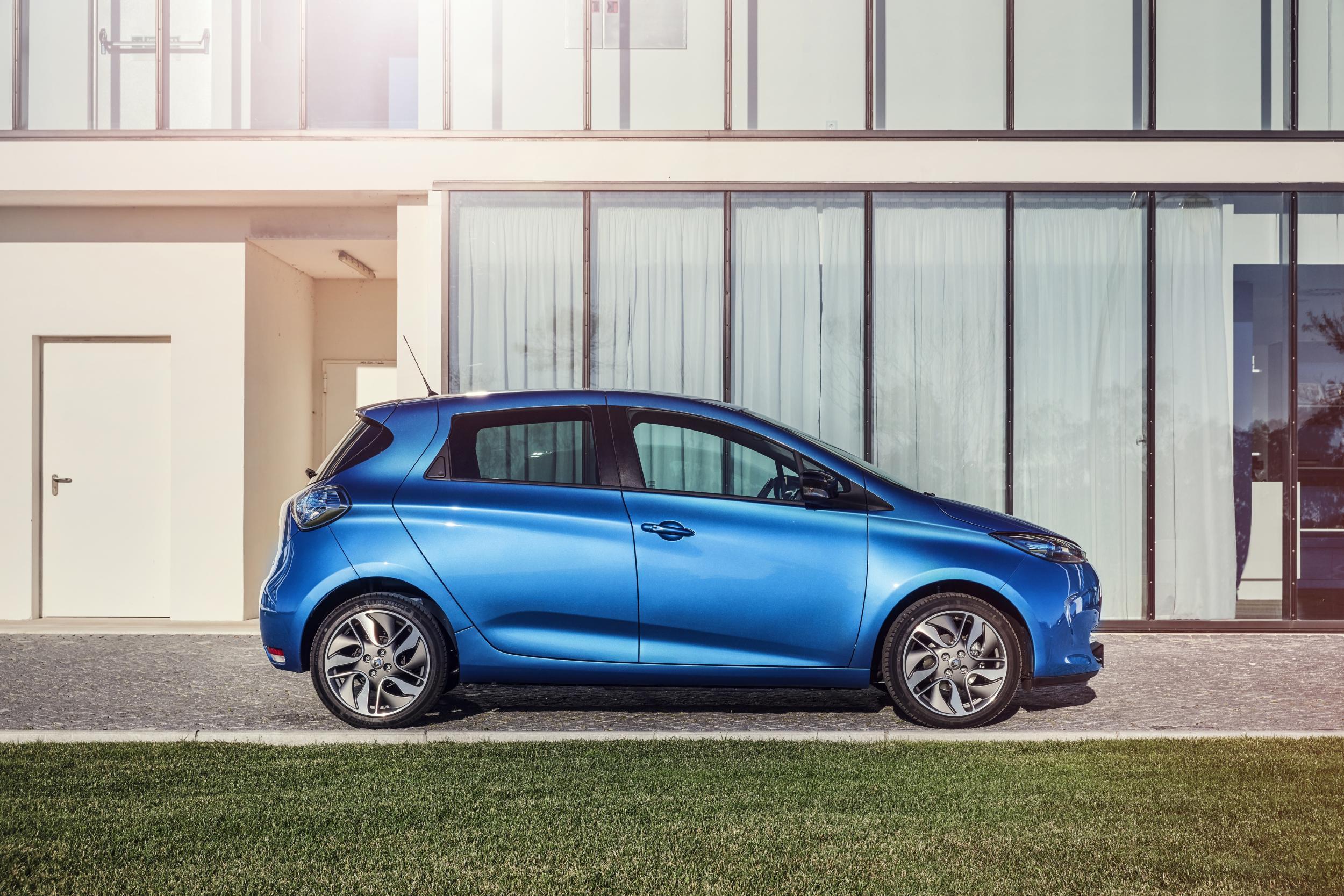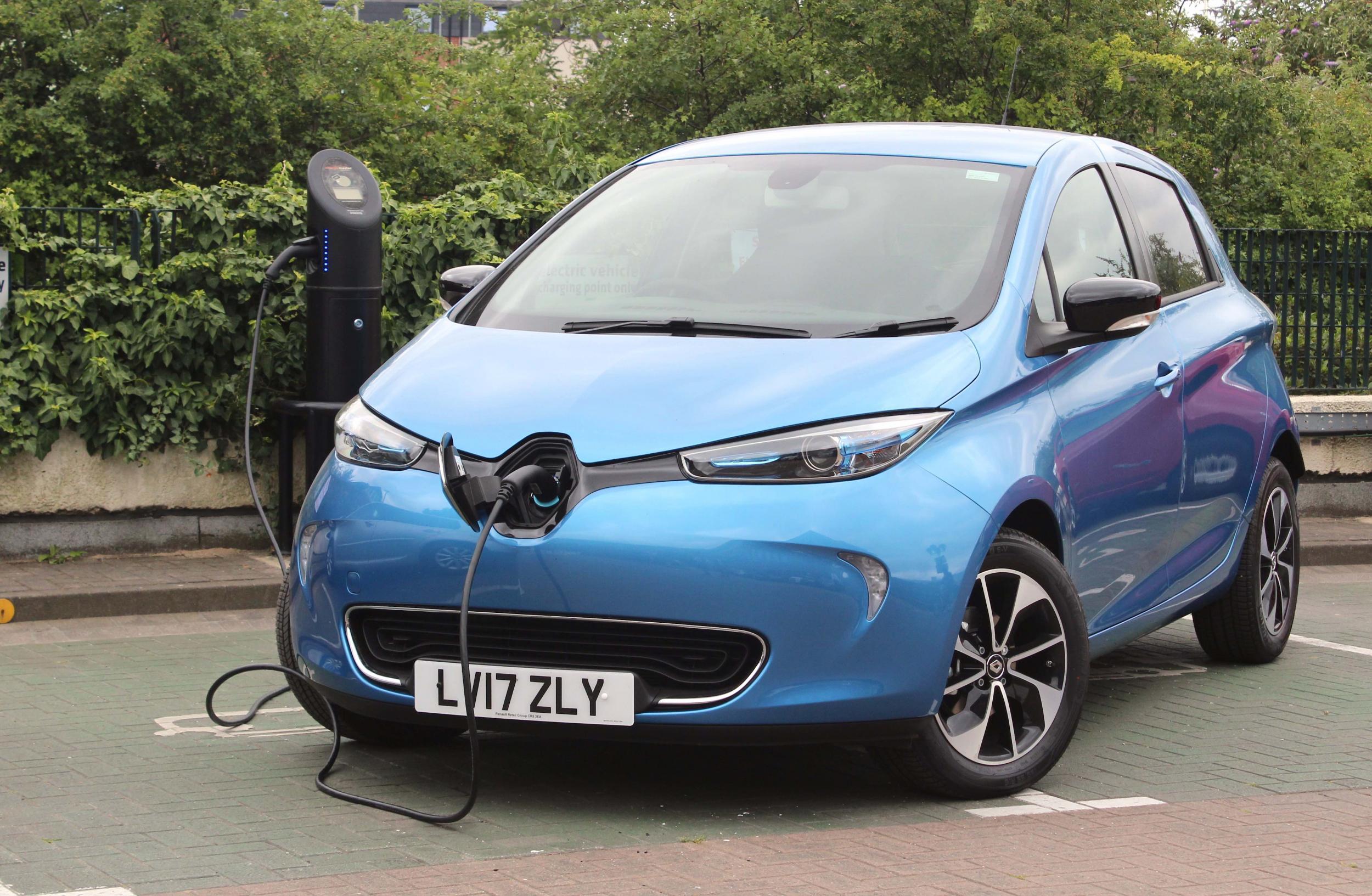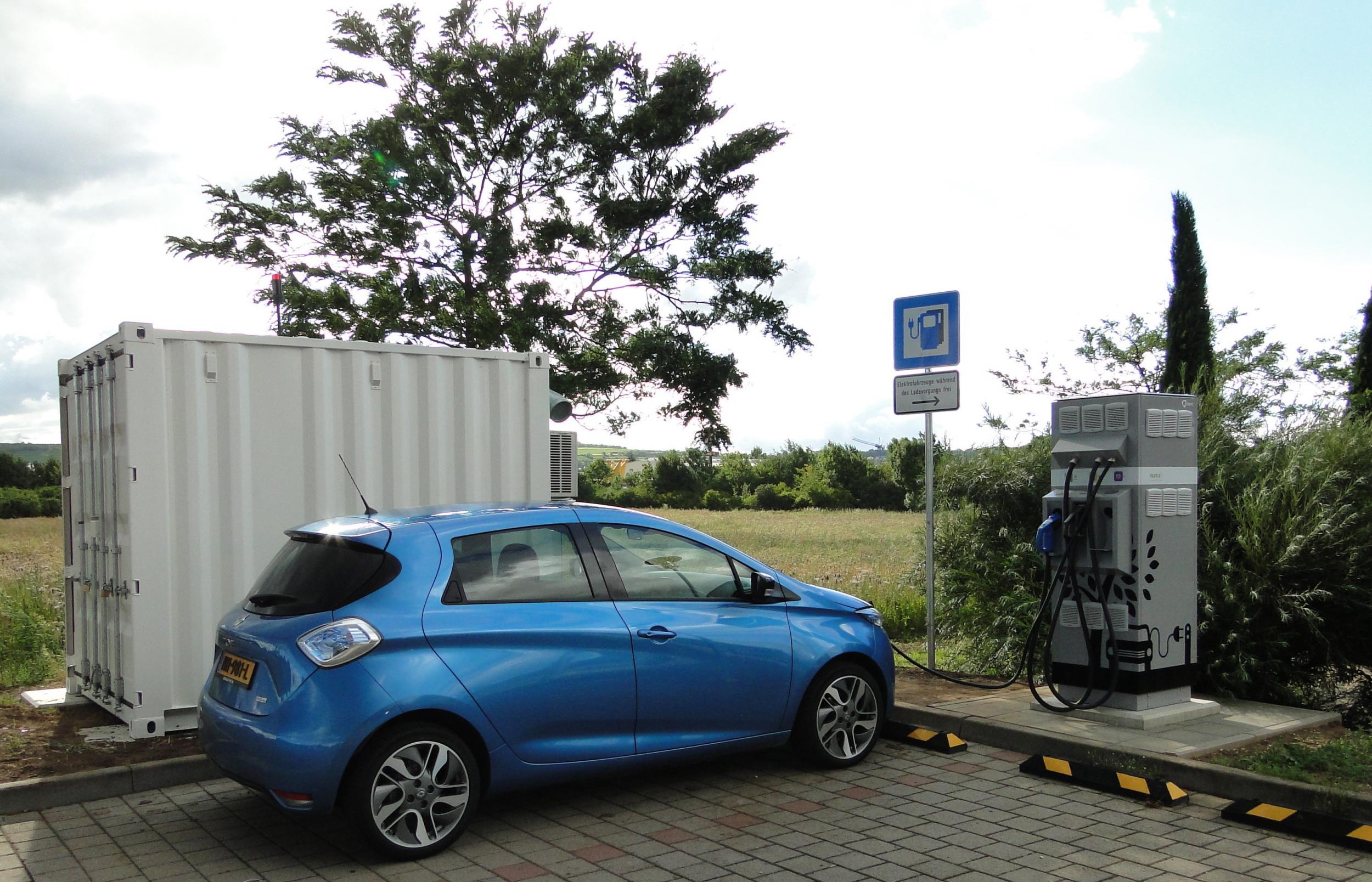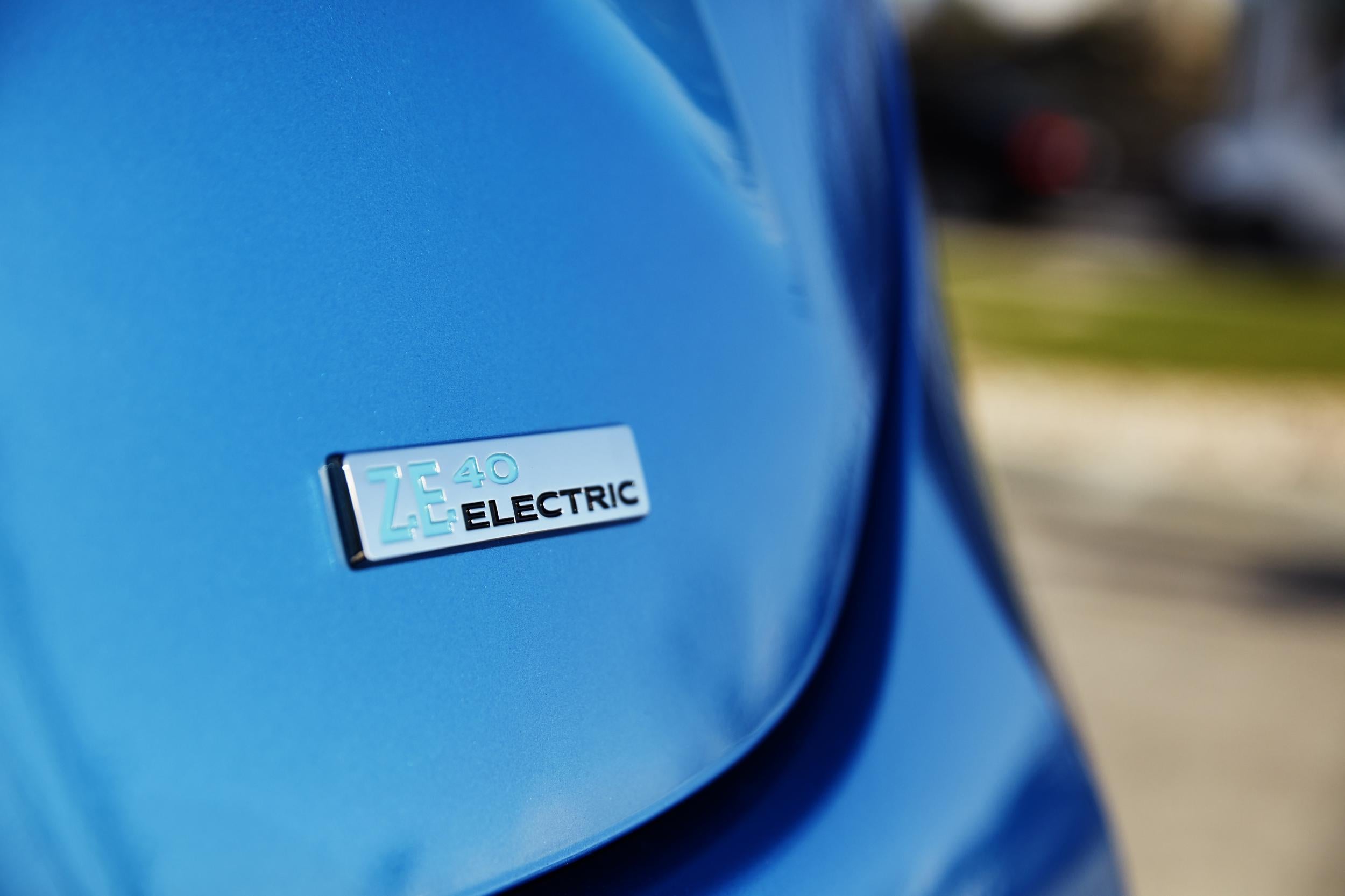Car Review: Renault Zoe
The electric car goes practical

Your support helps us to tell the story
From reproductive rights to climate change to Big Tech, The Independent is on the ground when the story is developing. Whether it's investigating the financials of Elon Musk's pro-Trump PAC or producing our latest documentary, 'The A Word', which shines a light on the American women fighting for reproductive rights, we know how important it is to parse out the facts from the messaging.
At such a critical moment in US history, we need reporters on the ground. Your donation allows us to keep sending journalists to speak to both sides of the story.
The Independent is trusted by Americans across the entire political spectrum. And unlike many other quality news outlets, we choose not to lock Americans out of our reporting and analysis with paywalls. We believe quality journalism should be available to everyone, paid for by those who can afford it.
Your support makes all the difference.One hundred and twenty-four miles. That is the most important single figure you need to know about the Renault Zoe. That, in case you’d not guessed, is its range in normal use in colder weather. I can vouch for that, and I can also tell you that you’ll find it can go somewhat further if you keep your speed down to, say, 50mph (which of course oftentimes you have to, involuntarily, because of weight of traffic or speed limits).
That’s all a bit pessimistic though. In warmer weather and everyday driving Renault say the Zoe will take you some 186 miles. I can well believe it, and the totemic barrier of 200 miles could be breached, with a bit of luck and skill and a preponderance of lower speed urban usage… all for a couple of quid on your electric bill.
Renault say that this expansion in the Zoe’s range – a larger battery (40kw) is responsible for most of the improvement – tackles what “remains the final psychological barrier that stands in the way of buying an electric car – so-called range anxiety”.

Does it? Well, not quite, to be honest. That’s because the barriers facing electric cars are less to do with the development of the cars themselves (impressively accomplished) but in the lack of progress in the charging infrastructure – woefully inadequate. At the risk of sounding a bit obvious, no one who lives in a terraced house or in a flat will find living with an electric car easy; those with off-street spaces of some kind and can fit a proper external charger to an outside wall will find an electric car perfectly acceptable.
For a start the 5,000 or so electric charging points are concentrated in cities and on motorways, and are split between a myriad of different companies, some large, some small: Ecotricity, Polar and Pod Point are just some of the ones I’ve used, for example. There are also lots of different designs of nozzle, not all of which will fit the different makes – standardisation would surely be a step forward. It’s not such a big deal to download all the various apps so that you’ll never be caught out, I suppose; but what happens if your mobile runs out of charge too? Range anxiety in electric cars is clearly communicable to electronic portable devices. (Irony).
Basically, charging your car is a huge faff compared with the ease of finding petrol or diesel, and paying for it (ie, cash is fine) and relying on the pumps to work. What happens if – and this has happened to me – the charger is out of order? Or if someone is plugged into the only serviceable one in the car park, possibly for hours on end? What if you then have to gamble that you’ve enough juice to limp to the next one? (Thanks to Zap-Map.com for the data, and go there for a map of all charging points, btw). What if there’s some problem with that one?
Those are just a few of the practicalities, and shortcomings. The Zoe, though, has an unusually versatile charging system that will let you use the very fastest of charging points (the 43kw ones), though you can’t plug it into your domestic mains (unusually). With the right supply of electricity you can get 80 per cent of your Zoe’s battery – and another, say, 100 miles of driving – charged up in about an hour. But of course that’s about 55 minutes longer than it’ll take you to stick a few litres of fuel in a tank. I have to say that you will find yourself killing a certain amount of time in Starbucks with a cup of tea and a copy of Car magazine. I’m being candid here.

I should also add that there’s a government subsidy to buy a Zoe, like almost all electric cars (and prices quoted here take account of that), plus one to get an exterior charging point installed at your home. As I say, flat dwellers are stuffed, though.
The Zoe, used wisely and with a bit of planning, won’t cause you any inconvenience in reality. How many of us, in fact, have ever had to drive hundreds of miles non-stop in remote countryside in the middle of the night on what journalists call a “mercy dash”? You can do that in a 20-year-old Micra for £250 with an MoT, but not in a £20,000 Zoe – but does it ever actually happen, or happen so often the investment is worth it? Most journeys you make are well within the Zoe’s range and not that far from home or work. Longer journeys demand a comfort break anyway, and are probably more suited to taking the train or plane. The thing about electric cars is that they do force you to make some compromises in your lifestyle, but most things do.
The spec
Renault Zoe Dynamique R90 Z.E.40
Price: £18,170 (after £5,000 govt grant)
Motor: Electric; 1-sp auto
Power output (hp): 92
Battery capacity: 41kWh
Top speed (mph): 84
0-60mp (seconds): 13.5
Fuel economy (mpg): n/a
Range: 124 miles+
CO2 emissions (g/km): 0
In return you get negligible running costs, reliability every bit as good as anything with an internal combustion engine, and an utterly quiet, refined ride. You also get a car that is fun to drive. Electric motors tend to have very high levels of “torque”, that is turning force, like if you were pushing down on a spanner to loosen a rusty nut. This means they can accelerate, but tend to run out of go at lower speeds than a normal car. Thus, this Zoe has more torque than a BMW 116, say, and not much less than a Mercedes-Benz 220d – taking that as an example of a well-engineered diesel powered machine (diesels tend to be torquier than petrol units, by the way). All that gives excellent acceleration up to about 30mph (reached in 4 seconds flat); but things tail off at about 50mph or 60mph. In “Eco” mode this is about where the Zoe rests on its laurels, the effort on the accelerator to push harder being quite pronounced and acting as a kind of deterrent to mild misbehaviour. The top speed is limited to 84mph, which has the great advantage that you’ll have less chance of losing your licence.
As you see, the Zoe looks like an overinflated Clio (with which it shares a platform and some components). It is very refined, with the very efficient heat pump much quieter than conventional air-conditioning (though I’ve found electric car heating systems take longer to warm up a cabin than in “normal” cars). Of course quietness isn’t a one-way street, so the Zoe helps pedestrians and cyclists become aware of its presence by making a sort of sci-fi noise at low speeds, and, with the sound of the motor, lends the Zoe a slightly ethereal, sci-fi sort of vibe around town, which I suppose is appropriate. Everything on the Zoe is geared towards economy and smoothness, from the special Michelin EV tyres to the constantly updating display of energy used and saved and range available. The only things I didn’t like were the soft brakes and the horn, which needed a very hard push to make even a weedy noise. It’s more annoying than you might think, and more important in a relatively quiet electric car.

The more perplexing question about a Zoe, like most electric vehicles, is about its economics not its engineering. The gulf between purchase cost and running costs are considerable, and much starker than the usual trade-offs between, say, economical diesels that are pricier to buy and tax than a petrol equivalent. Renault will now allow you to buy a Zoe outright (from £19,845) or with a battery-leasing deal (so they always belong to Renault and thus under a lifetime guarantee). That latter option reduces the starting list price to £14,245, but with another £99 a month on top if you do about 10,000 miles a year. All that needs to be set against what should prove the low costs of operation. “Filling up” costs very little from home, not much at a public point and, sometimes, can be found for free, for example at some Sainsbury’s supermarkets (though not fast charging, and only for a couple of hours). Some spreadsheet work required, then.
Dispensing with the traditional engine, clutch, drivetrain and other bits makes servicing and the MoT much easier to deal with – fewer moving parts. Renault also test their batteries to near destruction – driving them through a foot of water and sticking nails in them during development to ensure they are fit for purpose. I can’t vouch for them long term but I suspect the Zoe is rather over-engineered given its place in the company’s strategy, just as the first Toyota Priuses were to make sure that hybrid technology didn’t get an immediate bad name through breakdowns. Everything from those millions of hybrid cars to tablets and smartphones and laptops use lithium ion batteries, so that is well-tested and familiar technology; while the electric motor is older than the internal combustion engine. New-fangled or wacky as electric cars seem, they are only a different way of combining various quite routine bits of technology. So if you do acquire a Zoe you won’t be as radical as you might think, but you’ll be relived that the electric car is becoming a truly practical proposition.
Join our commenting forum
Join thought-provoking conversations, follow other Independent readers and see their replies
Comments